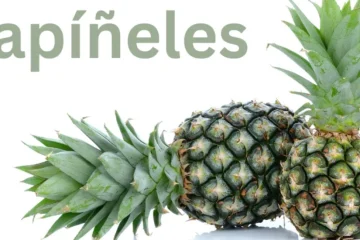1. The Origins of Arabica Coffee
Arabica coffee, scientifically known as *Coffea arabica*, has a rich history dating back over a thousand years. It is believed to have originated in the highlands of Ethiopia, where the indigenous people discovered the coffee plant’s invigorating properties. The name “Arabica” comes from the coffee’s journey through Arab regions, particularly Yemen, where coffee cultivation began to spread. The Arab traders took the beans across the Middle East and North Africa, contributing to its name and popularity. Eventually, Arabica coffee reached Europe and the Americas, and it became the dominant variety globally due to its superior flavor profile and aromatic qualities.
Unlike other coffee species, Arabica grows best in tropical climates, specifically at high altitudes between 2,000 to 6,000 feet. Its cultivation demands precise environmental conditions, including consistent rainfall and mild temperatures, making it more delicate and challenging to grow. Despite the effort required, Arabica Coffee remains the most popular coffee species in the world, making up about 60-70% of global coffee production.
2. Arabica’s Unique Flavor Profile
Arabica coffee is revered for its unique and complex flavor profile, which sets it apart from other coffee varieties. Compared to *Coffea canephora* (Robusta coffee), Arabica is known for its sweetness, fruity undertones, and a lighter, more delicate body. The flavors of Arabica coffee can range from sweet, citrusy notes to rich hints of chocolate and caramel, depending on the region where it is grown. The bean’s complexity is due to its higher sugar content and lower levels of bitterness, which result in a smoother, more balanced cup of coffee.
The subtlety of Arabica’s flavors makes it ideal for coffee aficionados who appreciate a nuanced drinking experience. Its acidity, often described as bright or wine-like, adds depth and liveliness to each sip. Regions like Central America, East Africa, and parts of South America, where Arabica coffee is predominantly grown, produce beans with distinct flavor profiles. For instance, Ethiopian Arabica offers floral and berry-like notes, while Colombian Arabica is known for its nutty, chocolatey flavors. The variety of taste experiences makes Arabica coffee a favorite among specialty coffee lovers.
3. The Growing Conditions and Challenges of Arabica Coffee
While Arabica coffee is prized for its superior flavor, it is also one of the most difficult coffee species to cultivate. The plant is highly susceptible to pests, diseases, and environmental stressors, making it vulnerable to climate change. Arabica thrives in cool, tropical environments with consistent rainfall and high altitudes. However, fluctuating temperatures and extreme weather conditions can severely affect its growth and quality. Farmers must invest in careful management practices, such as shade-growing and proper irrigation, to ensure the crop’s survival and maintain its premium taste.
One of the greatest threats to Arabica coffee is the spread of coffee leaf rust, a disease caused by the fungus *Hemileia vastatrix*. This disease has devastated coffee plantations worldwide, particularly in Latin America, where the majority of Arabica beans are grown. In addition to diseases, Arabica’s sensitivity to temperature increases due to global warming has led to a decline in yields. As the climate continues to shift, coffee farmers are searching for solutions to protect this delicate crop, including developing resistant Arabica varieties and implementing sustainable farming practices.
4. Sustainability and Ethical Concerns in Arabica Coffee Production
With increasing awareness about sustainability and ethical concerns in the coffee industry, Arabica coffee production has come under scrutiny. Many small-scale coffee farmers struggle with the impacts of climate change, low market prices, and unfair labor practices, particularly in developing countries where coffee is a primary source of income. To address these challenges, the global coffee industry has seen a rise in fair trade certifications and environmentally friendly practices aimed at improving the livelihoods of farmers while protecting the environment.
Fair trade Arabica coffee ensures that farmers receive fair compensation for their crops, often above market rates, and promotes equitable labor practices. Additionally, organic and shade-grown certifications help protect biodiversity by encouraging the use of natural fertilizers and reducing the need for harmful pesticides. These certifications have gained popularity among ethically-conscious consumers who are willing to pay a premium for sustainably sourced Arabica coffee. By supporting these practices, coffee lovers can help ensure that Arabica coffee remains both ethically produced and environmentally sustainable for future generations.
5. The Future of Arabica Coffee: Innovation and Adaptation
The future of Arabica coffee lies in innovation and adaptation to address the growing challenges of climate change, pest management, and market volatility. Scientists and coffee producers are working together to develop more resilient Arabica varieties that can withstand the changing climate while retaining the flavor profile that makes the bean so desirable. These efforts include breeding hybrid coffee plants that combine the robustness of other species like Robusta with the delicate flavors of Arabica, providing farmers with more resilient crops.
In addition to genetic innovation, advancements in coffee processing methods are enhancing the quality and sustainability of Arabica coffee. Techniques such as the honey process and natural drying methods reduce water consumption and improve flavor consistency. Furthermore, technology is playing an increasing role in supporting small-scale farmers by providing them with access to real-time data on weather patterns and market trends, helping them make informed decisions about their crops.
The specialty coffee market is also driving demand for Arabica beans, pushing the industry to focus on high-quality, small-batch production. As consumers continue to seek out unique coffee experiences, the emphasis on single-origin Arabica beans from specific regions will likely grow. This demand provides opportunities for coffee farmers to thrive, provided they adopt sustainable practices and remain adaptable to the changing environment. Arabica coffee’s future depends on the delicate balance between preserving its rich history and flavor while embracing the innovations necessary to sustain its production in a changing world.
Conclusion
Arabica coffee stands out as the most cherished coffee variety, celebrated for its intricate flavors, long history, and growing global importance. Despite the challenges of cultivation and environmental threats, Arabica remains the preferred choice for coffee enthusiasts worldwide. As sustainability and ethical considerations gain prominence, Arabica coffee continues to evolve, with innovations ensuring its production and quality are preserved for future generations. Whether enjoyed as a morning brew or savored in a specialty coffeehouse, Arabica coffee offers a complex, flavorful experience that highlights the dedication of the farmers who cultivate it and the care taken to preserve its unique heritage.




